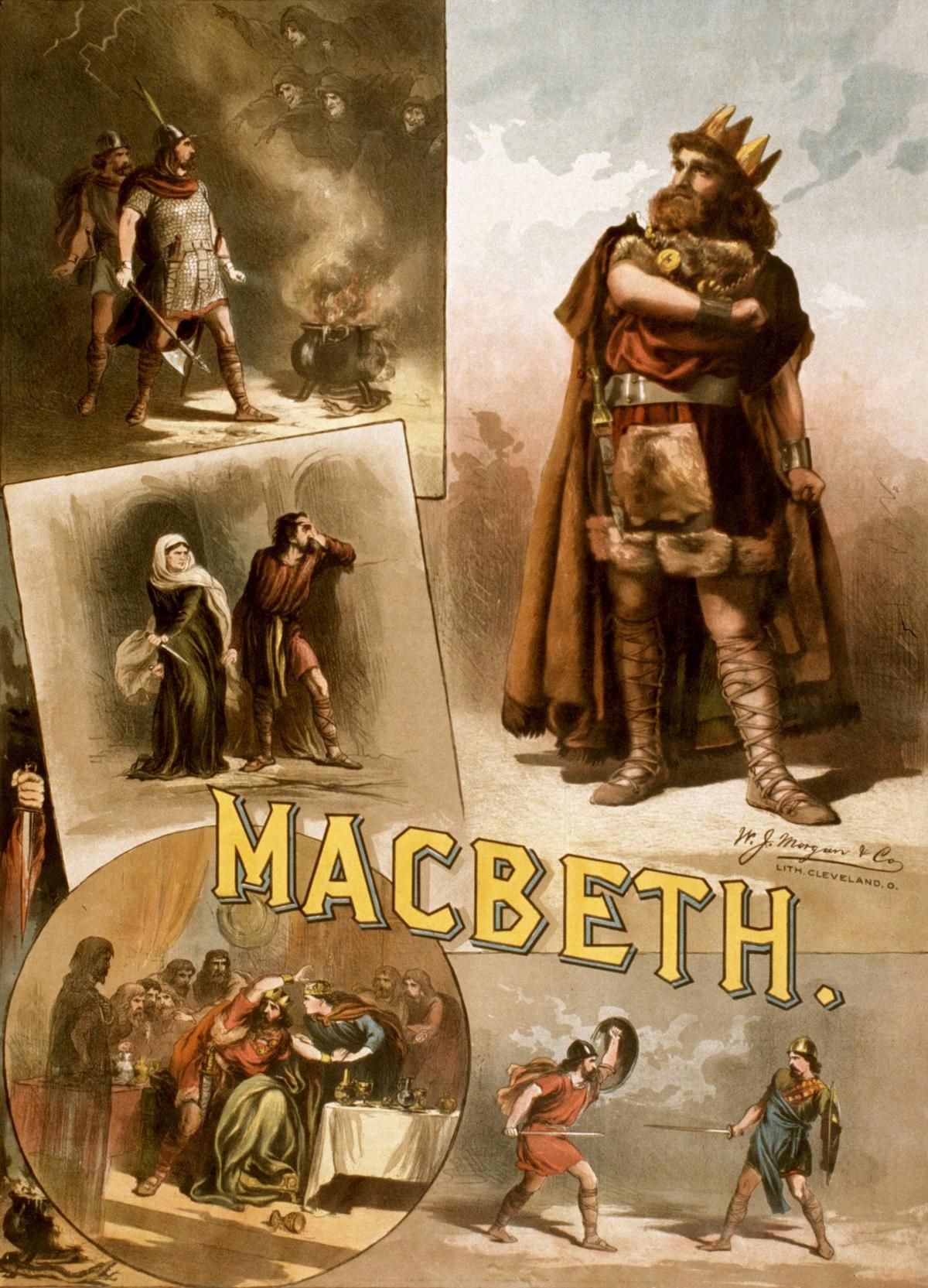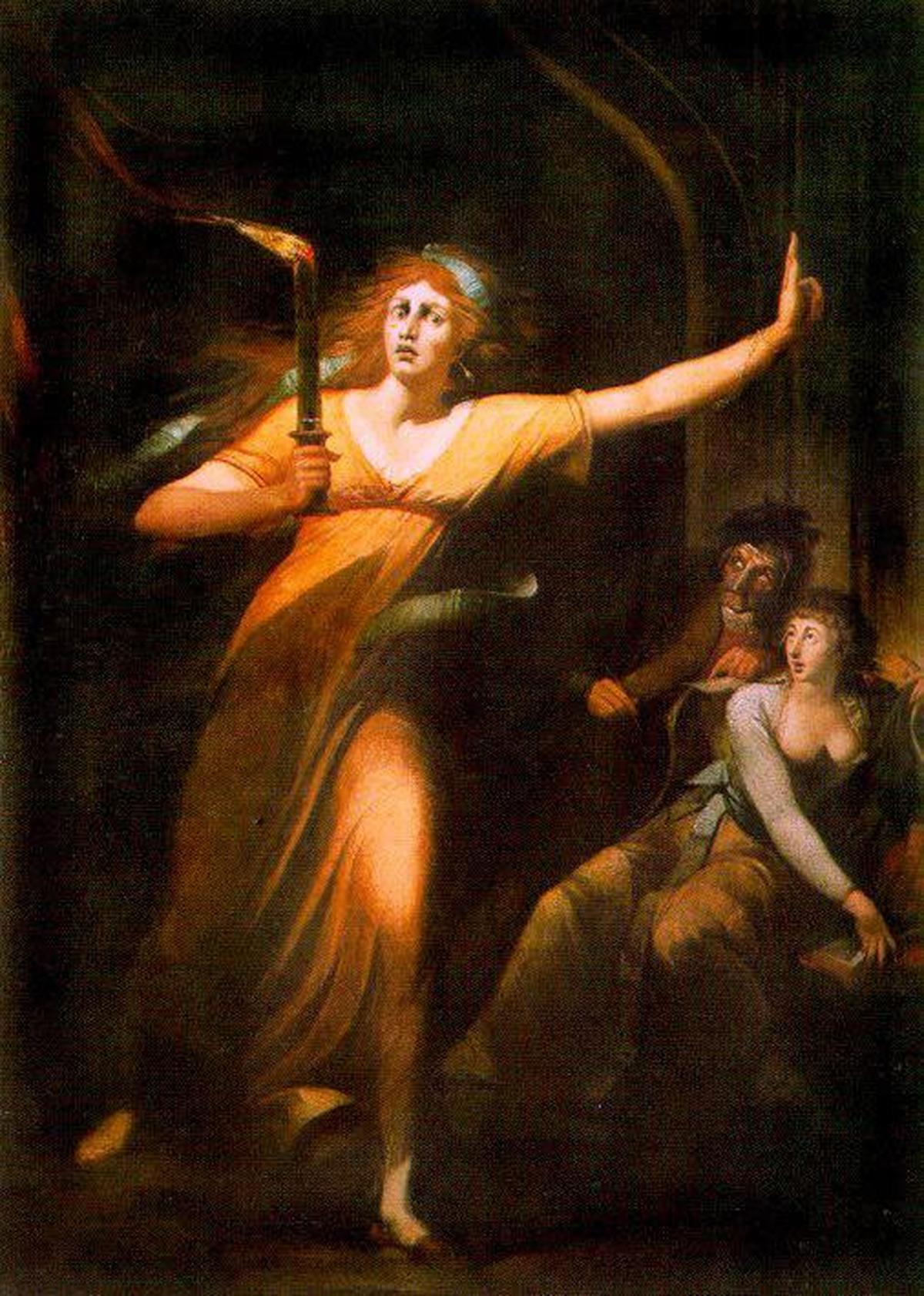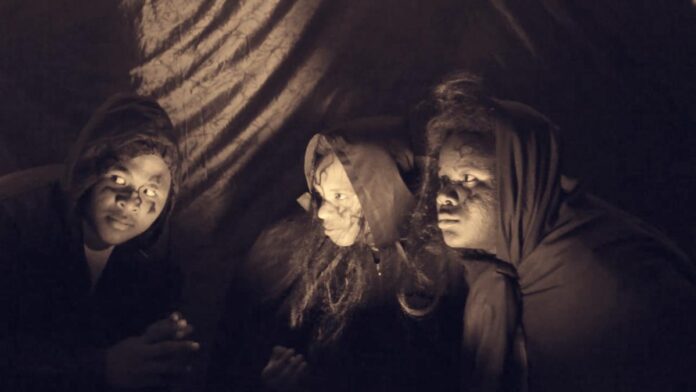
Kids from Heiderveld Secondary School, South Africa portraying the three witches in Macbeth
| Photo Credit: AKiba2x0 1/ wikimedia commons
When you hear the line “he who shouldn’t be named”… what comes to mind? For most of us, this line refers to Voldemort, the heinous villain of J.K. Rowling’s “Harry Potter” series. Although Voldemort might have wreaked havoc on Hogwarts and the wizarding world, there is another name that has been (almost) terrorising storytellers—or let’s just say theatre-goers and performers—equally for more than four centuries, and that name is… (brace yourself) Macbeth.
“Why?”
Well, I’m glad you asked.
The legend behind the cursed play

A poster of Macbeth’s 1884 production
| Photo Credit:
WIKIMEDIA Commons
The superstition surrounding the play dictates that neither the play’s title nor any quote from the text must be spoken in a theatre outside of rehearsals or the performance itself. Refusal to adhere to this taboo is thought to invite trouble, bad luck, or even disaster to the rebel or the team putting together the bard’s play.
The legend has been feared for so long that it has become embedded in the English public’s psyche. One piece of evidence of this is the fact that there is no sign for the word ‘Macbeth’ in British Sign Language.
To avoid any dicey situations, people in theatrical circles have come up with many euphemisms to refer to the play, such as “The Bard’s Play” or “The Scottish Play.”
The king, the context & the curse
Witch trials and the persecution of suspected witches were rampant across Europe during the 16th and 17th centuries. When King James I ascended to the throne of England in 1603, his disdain for witchcraft was clear. He even labelled it “high treason against God,” justifying all forms of torture and brutality against those accused. His obsession with the dark arts was said to be inspired by the execution of his mother, Mary, Queen of Scots. This fixation intensified after he encountered a brutal storm at sea while he was the king of Scotland. Convinced witches were responsible, James launched a witch-hunt upon his return home and quickly penned Daemonologie, a book outlining his plans to eradicate witchcraft.
When English playwright William Shakespeare staged Macbeth around 1606, featuring three “weird sisters” chanting convincing spells, it struck fear into the public. Rumours swirled that a coven of witches had cursed the play. Historians later debunked the tale that the actor set to play Lady Macbeth (in the first production of the Shakespearean tragedy) died suddenly before opening night, revealing it as a myth created by the 19th and 20th-century cartoonist and critic Max Beerbohm. Yet, by then, the legend had already cemented its place in theatrical lore.
A tainted legacy

“The sleepwalking Lady Macbeth” by Johann Heinrich Füssli
| Photo Credit:
The Yorck Project (2002)/wikimedia commons
The play hasn’t had much luck since. Many of its productions have been tainted by accidents, including actors falling off set, mysterious deaths, and even riots, notably in 1721 and 1772. A particularly macabre incident occurred in a 17th-century Amsterdam production when the actor playing King Duncan was allegedly killed in front of a live audience, as a real dagger was used instead of a stage prop during the stabbing scene.
But don’t these kinds of accidents happen with other plays too? Macbeth, with its stock of complicated scenes, including six murder scenes and tumultuous storm sequences, is a risky gambit, curse or no curse. Its production costs are so high that British historian Martin Harrison noted in his 1998 book, The Language of Theatre, that it could bankrupt a theatre.
But it’s wiser to not take any chances
So in case you utter the name of ‘The Scottish Play’ in the theatre, here’s a simple antidote. Exit the theatre, spin around three times, spit, curse and then knock on the theatre door and ask to be let back in.
#Tracing #origin #Macbeths #alleged #curse
